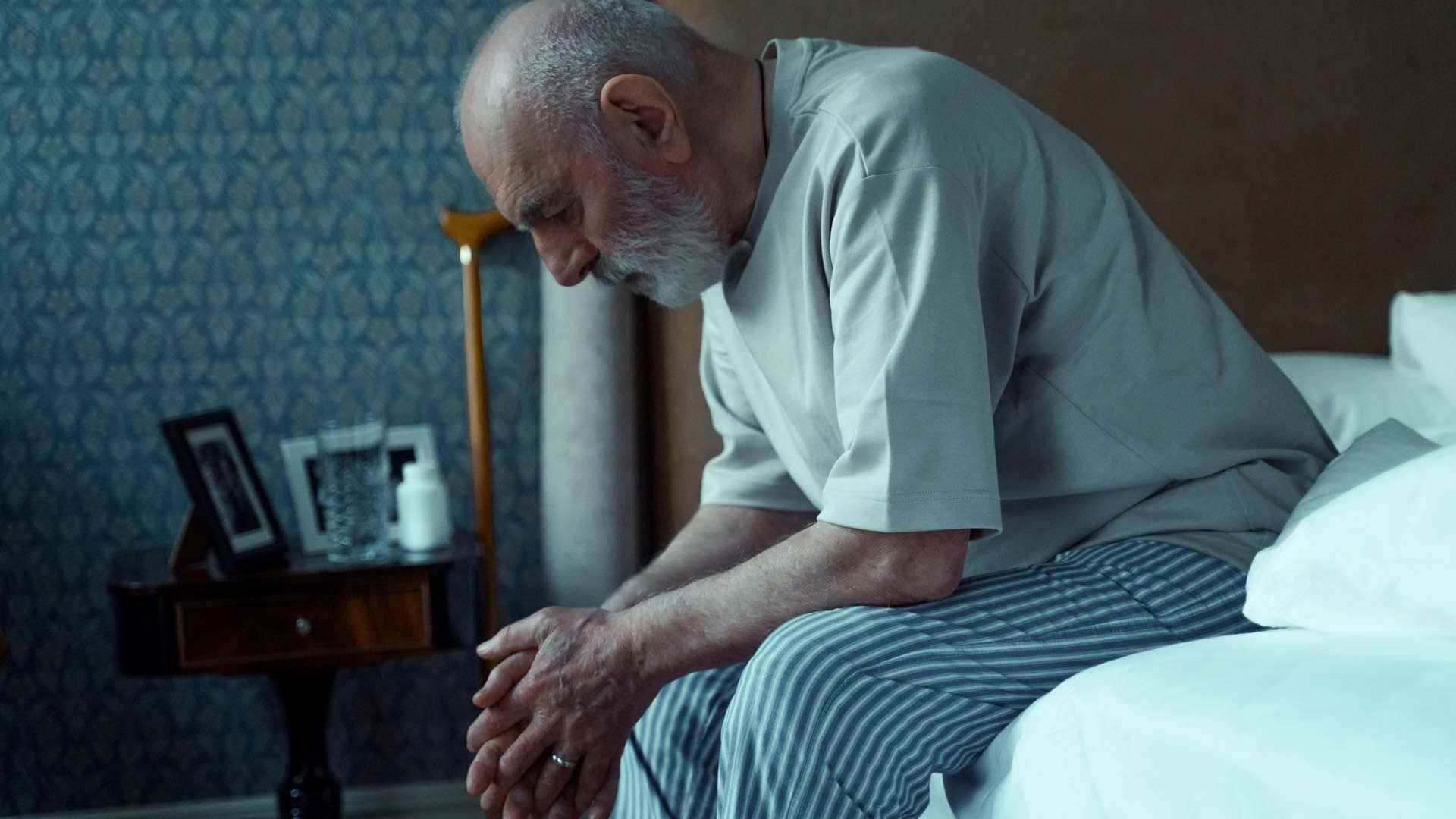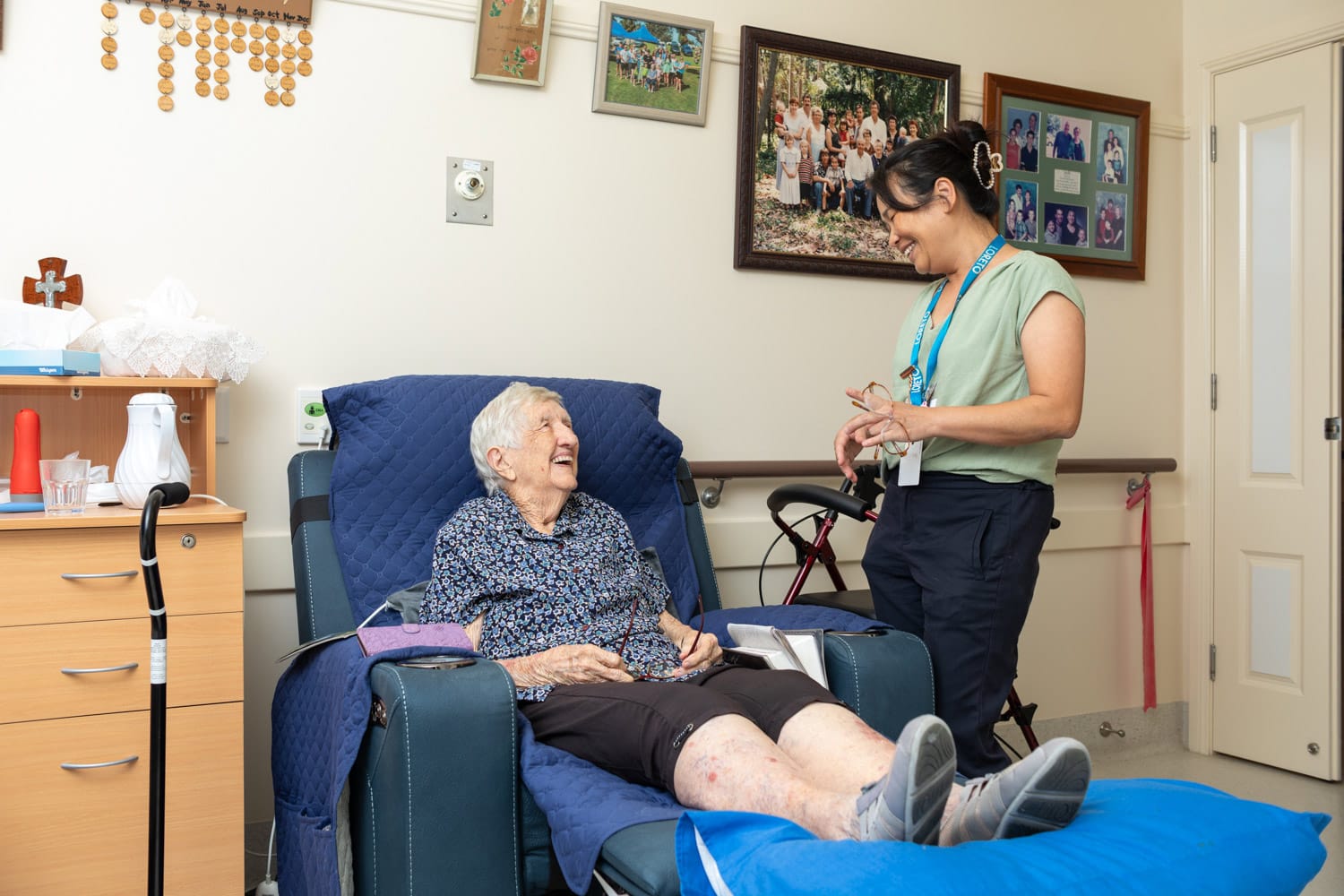
What is Elder Abuse?
Elder abuse is a serious problem that can have devastating consequences on the elderly, the aged community around them, their carers and their loved ones. It can take many forms including physical abuse, emotional or psychological abuse, financial abuse, sexual abuse and neglect.
The definition of elderly abuse according to the World Health Organisation:
- A single or repeated act
- Lack of appropriate action
- It causes harm or distress to the older person
- Can occur within any relationship where there is an expectation of trust
Abuse of the elderly doesn’t discriminate. It can affect people of any background, gender, mobility level or social status. Potential abusers can be almost anyone and the worst part is, it’s often the people they’re closest too. Such as their care givers, partners, friends, family and even other residents.
It’s rare that a victim suffers from only one form of abuse, as different types of harm share similar traits and can be directly related to each other. Also, if an abuser feels like their behaviour is going unnoticed then this may embolden them to engage in other forms of abuse.
What do we do?

Here at Mercy Community, we follow strict guidelines outlined by the National Catholic Safeguarding Standards (NCSS) and Serious Incident Response Scheme (SIRS). Together with our own stringent internal processes and standards, this helps us to ensure that our residents receive the best quality care possible. Protecting the people we support is embedded in our leadership, governance and culture. We listen to the voices of everyone we support, remaining vigilant and making improvements where and when necessary.
Protection is a collaborative process, not only amongst team members but with residents and their families. Constantly keeping everyone informed of their rights and involving them in the decision-making process.
Our team members are supported to maintain safeguarding values in their daily practices. Ensuring processes are in place to monitor concerns and complaints and that they’re dealt with appropriately. Having created a safe physical and online environment, we’ve reduced the opportunity for harm. Just because we have effective systems in place that offer excellent levels of protection and support, doesn’t mean that we rest on our laurels. Our systems, processes and team members are regularly reviewed to look for improvements in the care we provide.
What to look for
Due to some older people being either afraid to speak up or incapable of communicating, it is important that we all stay vigilant and know the best course of action to take. To bring this issue to light we thought we’d share the signs to look out for and actions you can take.
- Physical injuries
A non-accidental act which results in physical pain or injury. Injuries such as unexplained bruises, cuts, burns and fractures are often seen on victims of abuse. These can be hard to spot, as some people may be prone to injuries and bruise easily. It’s worth noting the frequency and severity of the injuries and if they seek medical assistance or try to conceal them.
- Emotional or psychological distress
Signs of emotional or psychological abuse may include sudden changes in behaviour, anxiety, depression, fear, withdrawal from social activities and a lack of interest in things the person previously enjoyed. They may just be having a bad day but if the behaviour persists then it could be part of a bigger issue.
- Financial exploitation
Elder financial abuse can be very hard to identify, as discussing finances can often be a sensitive topic. It is worth keeping an eye out for sudden changes in their spending habits, such as missing money, or unexplained bills or debts.
- Neglect
Keep an eye out for poor hygiene, untreated health problems, malnutrition, dehydration, and unsafe living conditions. You may be uncomfortable inquiring about a person’s appearance so it’s best to approach the subject from a place of concern and make a comparison to how they previously used to present themselves.
- Sexual abuse
Unless you’re in an intimate relationship with someone, these signs can be harder to establish. However, you can be open minded if they complain about symptoms such as unexplained genital infections, bruises or injuries around the genital area and unexplained bleeding.
If someone is experiencing sexual abuse it may also affect their emotional state, they may be withdrawn or quieter than usual. Be aware of how they interact with other residents, visitors and care givers, as their behaviour may change towards their abuser.
- Caregiver behaviour
Abuse of elderly people by caregivers is a sad but very real problem. The caregiver may exhibit controlling or threatening behaviour, isolating the older person from friends and family. Signs may include the person in care not wanting to be left alone with a carer. They may also ask questions about a particular individual or about hypothetical situations involving abuse.
- Psychological Abuse
This is one of the hardest forms of abuse to spot but also one of the most damaging. Commonly manifesting as unusual behaviour and a hesitation to talk openly. They may appear confused or disorientated or anger easily without an apparent cause. Sudden mood swings or unusual behaviour is often a sign that someone is being abused psychologically.
- Social Abuse
It’s important not to dismiss being left out of social situations as a point of concern. Although it may seem like a minor problem it can have a massive impact on the person in care. When someone is isolated and then denied contact with family, friends or is restricted from social activities, it can severely impact their mental health. They may appear withdrawn, anxious and suffer low self-esteem.
of perpetrators are family members
What can you do?
If you suspect that an elderly person is being abused, it is important to report it to the appropriate authorities. If you notice any of the signs listed above, here are some actions you can take:
- Report suspected abuse
Depending on the severity of the abuse, speak with the management of the facility to inform them of what you have noticed and ask what steps they plan on taking. If you feel the person in question is in immediate danger contact adult protective services or law enforcement. They will then advise you on what to do next.
- Provide support
If you know an older adult who is being abused, offer your support and encourage them to seek help. Let them know that they are not alone and that there are resources available to help them.
- Obtain legal help
If you suspect that an older adult is being financially exploited, consider contacting a lawyer who specialises in aged care law. They can help you understand your legal options and take steps to protect the assets and finances of the person in care.
- Educate yourself and others
Elderly abuse is a complex and delicate subject, so it’s important to learn more about what you can do and educate others about the signs and risks. By raising awareness, you can help prevent elder abuse and protect older adults in your community.
- Talk to someone
If you’re not certain enough to talk to the aged person or the authorities, you can always talk to a friend or relative. They may be able to help answer questions you may have or they could have noticed the same signs as you. A religious leader may be able to offer you support and guidance. They may not necessarily have all the answers but they can support you and listen to your concerns while you try to find a resolution.
Remember, if you suspect that an elderly person is being abused, it’s important to take action. Reporting suspected abuse can help protect older adults and prevent further harm. Together we can ensure the safety of our community’s most vulnerable people, to help them lead safe and fulfilling lives.
Visit our website to find out more about the care Mercy Community provides and the exceptional services on offer to you or the people you care.
Experience life with Mercy Community
Here at Mercy Community Aged Care, we believe a big part of our job is helping you to flourish.
Contact the following organisations if you or anyone you know needs help:
1800 ELDERHelp: 1800 353 374
1800 RESPECT: 1800 737 732
Lifeline: 13 11 14
Beyond Blue: 1300 22 46 36
Headspace: 1800 650 890



